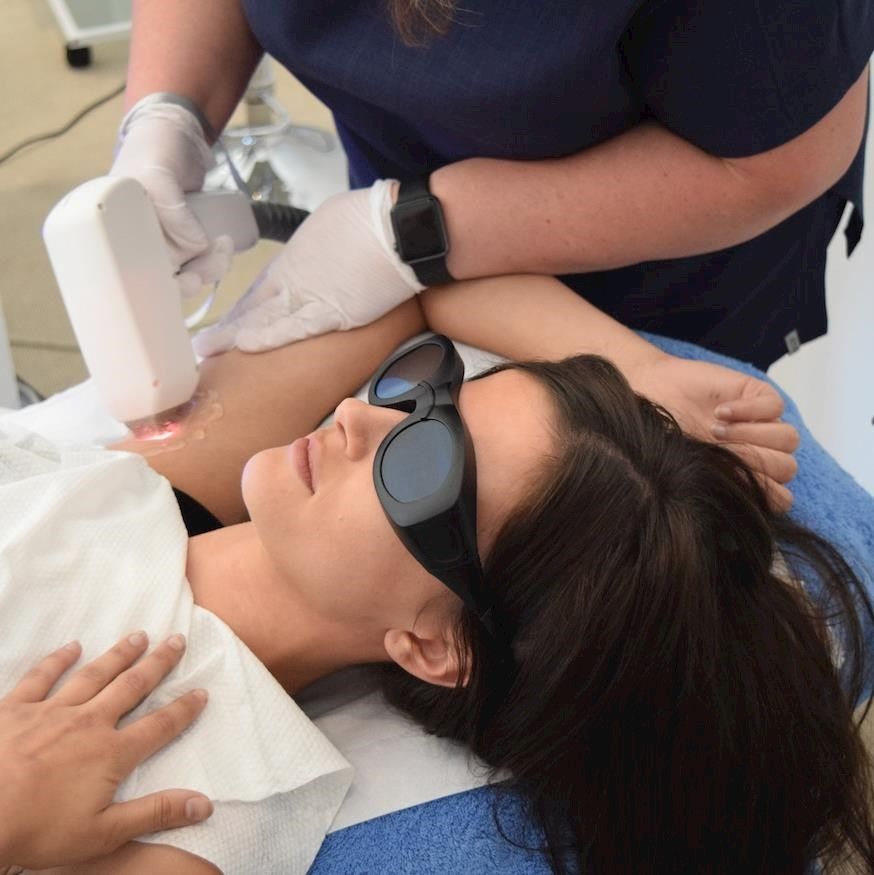In recent years, laser hair removal has become an increasingly popular choice for those seeking a long-term solution to unwanted Is It Haram to Do Laser Hair Removal Dubai. While this cosmetic treatment offers convenience and effectiveness, it also raises questions in many communities regarding its permissibility under Islamic law. With different interpretations of religious principles, it is crucial to understand whether laser hair removal is acceptable in Islam.
Understanding Laser Hair Removal
Laser hair removal is a non-invasive cosmetic procedure that uses concentrated beams of light to target and destroy hair follicles, thereby preventing future hair growth. It is commonly used to remove hair from various body areas, including the face, legs, arms, and underarms. The procedure is known for its long-lasting results, with many people requiring fewer touch-ups after the initial treatments.
Although the procedure is widely regarded as a safe and effective solution for unwanted hair, its acceptability in Islam has been a topic of discussion among scholars. To explore whether it is permissible, it’s essential to consider Islamic teachings on personal grooming, body modification, and the underlying principles that guide Islamic practices.
Islamic Views on Personal Grooming
Islam encourages personal cleanliness and grooming, viewing it as a part of a Muslim’s faith and devotion. The Prophet Muhammad (PBUH) emphasized the importance of maintaining hygiene and cleanliness through his sayings (Hadith), with specific references to practices like trimming the mustache, cutting nails, and removing pubic and underarm hair.
In Islam, certain forms of hair removal are explicitly mentioned in the Hadith. The Prophet instructed his followers to remove underarm and pubic hair regularly, as part of the fitrah (natural disposition). These practices, known as Sunnah, are seen as acts of cleanliness that help Muslims maintain a hygienic and pure state. However, the method of hair removal is not always specified, leaving room for different interpretations.

Is Laser Hair Removal Permissible?
The permissibility of laser hair removal in Islam depends on various factors, including the intention behind the procedure, the method used, and the cultural context. Scholars have discussed these aspects in light of Islamic principles.
- Intention (Niyyah):In Islam, intention plays a significant role in determining the permissibility of any action. If the intention behind removing body hair is to maintain cleanliness and personal hygiene, then the action is generally considered permissible. Laser hair removal, when done for hygienic reasons, aligns with the Islamic principle of cleanliness and is thus deemed acceptable.
- Body Modification:Another point of contention is whether laser hair removal constitutes body modification, which is generally discouraged in Islam. In the context of body modification, scholars have primarily focused on procedures like tattooing or altering one’s natural features for the purpose of vanity. Laser hair removal, however, is considered different as it does not permanently alter the body’s natural features or cause harm. It merely removes unwanted hair temporarily, making it less likely to fall under the category of forbidden body modifications.
- Health and Safety Concerns:Islamic rulings emphasize that actions should not cause harm to the body. The Prophet Muhammad (PBUH) said, "There should be no harm or reciprocating harm." Therefore, any procedure that risks permanent damage or harm is not permissible. Laser hair removal, when performed by trained professionals in a safe and controlled environment, is generally considered safe and does not pose a significant risk of harm to the body. As long as there are no health risks involved, laser hair removal should be permissible from an Islamic perspective.
- Modesty and Privacy:Modesty is an essential principle in Islam, and any cosmetic procedure should align with Islamic values of modesty and privacy. Laser hair removal is generally performed in private settings, ensuring that a person’s modesty is maintained during the procedure. The practitioner performing the treatment is typically the same gender as the client, further adhering to the principles of modesty in Islam.
- Excessive Use for Vanity:While the removal of body hair for cleanliness and hygiene is permissible, excessive grooming or altering one’s appearance purely for vanity or to conform to societal beauty standards is discouraged in Islam. The focus in Islam is on inner beauty and modesty, and a person should not undergo treatments for vanity's sake. Therefore, if the individual seeks laser hair removal solely for superficial reasons or to fulfill societal beauty standards, scholars may view this as undesirable or even impermissible.
The Opinion of Islamic Scholars
Islamic scholars have varied opinions regarding laser hair removal, and their perspectives often depend on their interpretations of the primary sources of Islamic law (the Quran and Hadith). However, most scholars agree that laser hair removal is permissible as long as it is done for hygienic and modest reasons. They emphasize that the procedure should not cause harm to the body and should be performed with good intentions.
Many scholars also acknowledge that Is It Haram to Do Laser Hair Removal in Dubai is a modern method of achieving what was traditionally accomplished through shaving, waxing, or plucking. Since the procedure is non-invasive and does not alter the natural body, it is considered more of a technical advancement than an act of vanity or harm.
Conclusion
Laser hair removal is generally deemed permissible in Islam, provided that it is performed with the intention of cleanliness and hygiene, without causing harm or violating principles of modesty. As with any cosmetic treatment, the individual’s motivation and the manner in which the procedure is performed should align with Islamic values. Therefore, while some may have reservations about the procedure due to concerns about body modification or vanity, most scholars agree that laser hair removal is acceptable as long as it adheres to the principles of modesty, hygiene, and safety.
